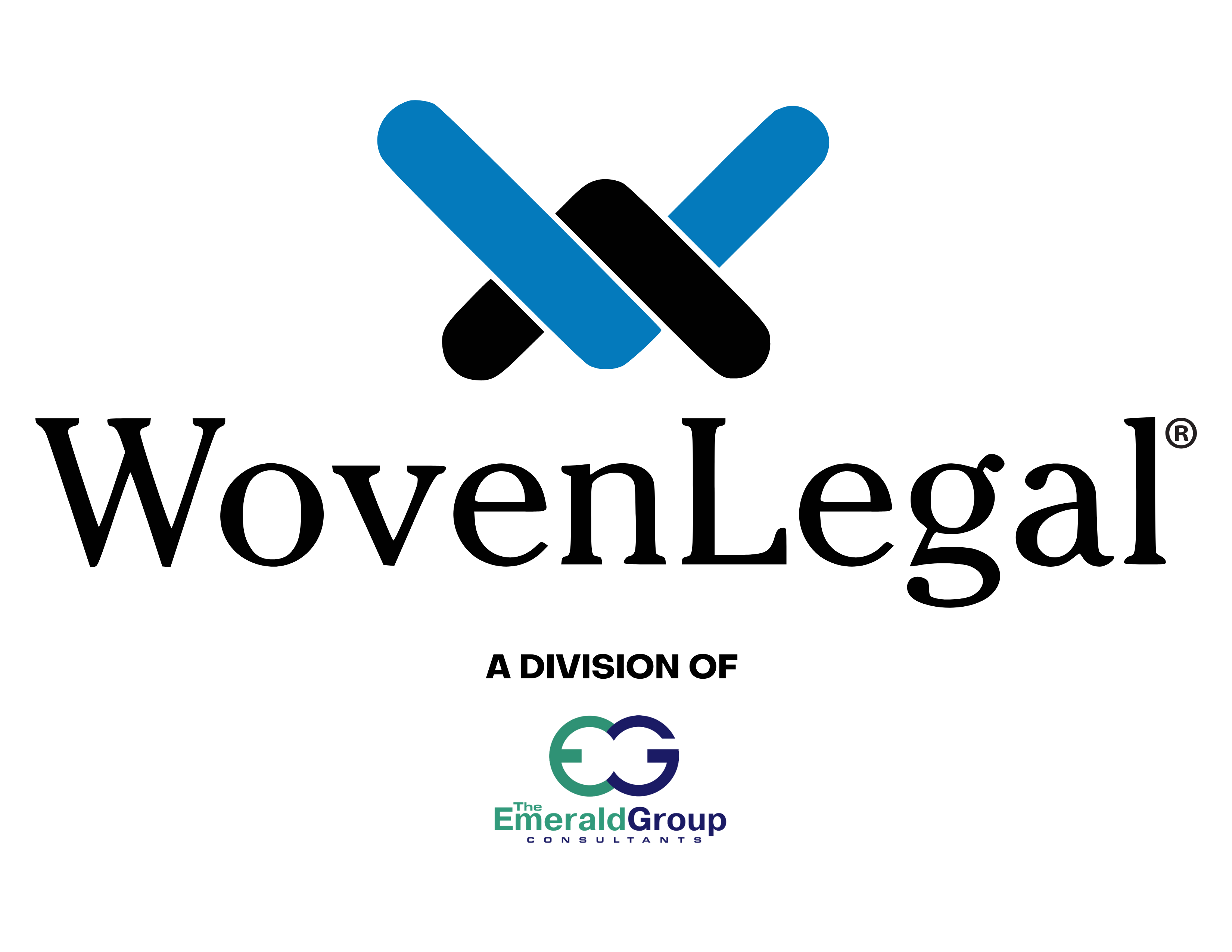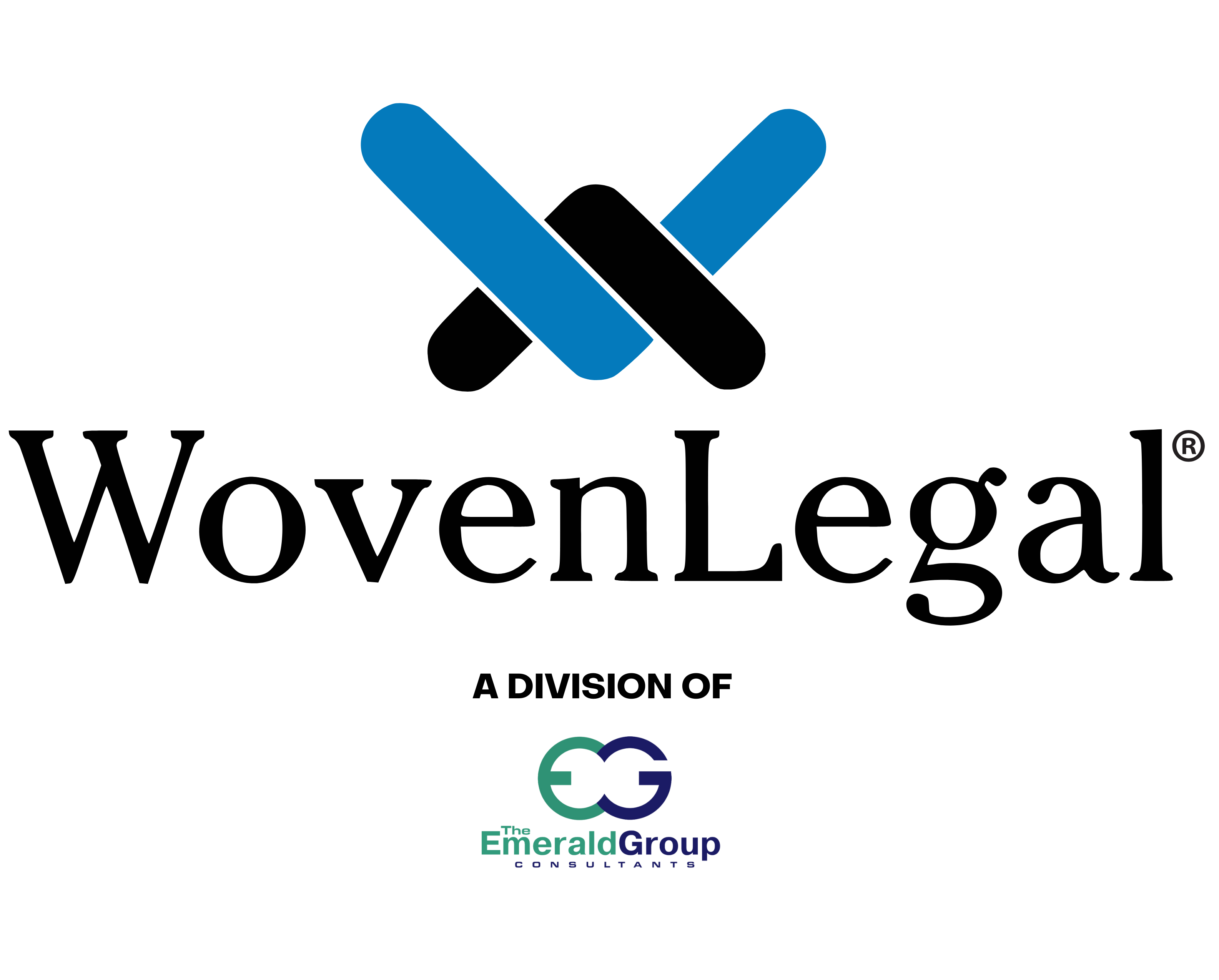For the first couple of years after launching Woven Legal, we worked with several
companies that weren’t just vendors — they were friends. Many of those relationships
remain strong today. But one, in particular, stands out for the amount of stress, time, and
energy it consumed before ending.
I had known the owners for years; we’d once been coworkers, and I’d always admired their
vast knowledge. So when Woven Legal grew and I needed help in their area of expertise,
hiring them felt like a no-brainer. For the first year, everything went smoothly — clear
communication, strong results, solid deliverables. Then, almost imperceptibly, things began
to slide. Deadlines were missed. Quality declined. Mistakes started costing money.
When I voiced my concerns, there was no accountability — only excuses. And when I started
to question whether the partnership still made sense, they doubled down by trying to upsell
me. I remember feeling drained and wondering, ‘Will this get better, or am I expecting too much?’
Thankfully, my business coach at the time offered clarity. He reminded me that a business is
a living thing — one that must be cared for and protected because real people depend on it
for their livelihood. That struck a chord. He went on to explain that savvy business owners
regularly evaluate their vendors and could expect to replace about 10 percent each year.
Hearing that shifted my perspective. The decision was suddenly obvious: this vendor had to
go. They weren’t thrilled, but the truth is — the business was stronger because of it.
With Q4 approaching — a season for evaluating what’s working and what’s not — here are
seven signs that often indicate it’s time to cut ties with an underperforming vendor.
1. Their Deliverables Require More Supervision Than Support
When you hire a vendor — whether it’s a marketing agency, IT provider, or legal staffing
company — the goal is leverage. You want expertise that frees you to focus on high-value
legal work.
If managing your vendor consumes almost as much energy as doing the work yourself, the
relationship isn’t serving you. Even well-meaning vendors can become liabilities if they can’t
operate independently after clear feedback.
Ask yourself: If I stopped managing this vendor for two weeks, would the wheels stay on? If
not, it’s time to re-evaluate.
2. They’re Defensive Instead of Accountable
Every attorney knows the value of accountability. When a motion is filed late or a client’s
document is incorrect, successful attorneys take responsibility and fix it. You should expect
the same from your vendors.
A trustworthy vendor owns mistakes and provides a concrete plan to get back on track. A
defensive one does the opposite — they turn the issue around, even suggesting you’re the
problem. Suddenly, the conversation shifts to how your expectations weren’t clear or your
team caused the delay.
Even if there’s a grain of truth in the misunderstanding, that kind of defensiveness exposes a
vendor more focused on deflecting blame than fixing the problem. If you’re unsure,
gut-check your instincts with a valued colleague. Once trust develops a crack, it rarely stays
small — in vendor relationships, it quickly becomes a sinkhole.
3. They’ve Stopped Proactively Adding Value
The best vendors are partners, not placeholders. They bring new ideas, share insights, and
help you run a more efficient practice — even when you haven’t asked.
At Woven Legal, our fractional paralegals and legal assistants don’t just complete assigned
tasks; they often recommend workflow improvements or ways to make Clio run smoother
based on what they’ve learned supporting other firms.
When a vendor becomes complacent — delivering the same results month after month
without innovation — you’re paying for stagnation. Law firms evolve quickly; your service
partners should too.
4. Communication Has Become Inconsistent or Evasive
Few things erode confidence faster than poor communication. When emails go unanswered,
deadlines slip without adequate explanation, or updates are vague (‘We’re still waiting on a
few things…’), you end up managing uncertainty instead of your business.
Your clients expect precision, clarity, and timely responses — and you work hard to deliver
exactly that. Well then, what are you?? Chopped liver?! You’re their client, and if a vendor
isn’t providing the same caliber of service, that’s a problem.
Consistent communication signals professionalism; inconsistency signals disorganization
and a lack of respect for your time. In my experience, these situations rarely improve — they
only get worse.
5. Their Pricing No Longer Matches Their Value
Paying for quality makes sense — overpaying for mediocrity doesn’t. When costs climb but
results don’t, or better solutions exist for less, it’s time to rethink the partnership.
Schedule time on your calendar to review each contract annually and ask: Would I hire this
vendor again today at the same rate? If not, it’s time to explore vendors who bring both
performance and perspective.
6. They Don’t Understand (or Respect) the Legal Industry
This one can be subtle but costly. We’ve seen attorneys pay the price when vendors
unfamiliar with the legal space fail to understand the ethics, compliance, and confidentiality
obligations law firms must uphold.
At Woven Legal, our entire business is built around serving law firms. We match our clients
with experienced virtual paralegals and legal assistants who truly understand how law
firms operate. They work in the same world — and the same legal software — every day. Not as consultants, but as professionals managing matters, deadlines, and client
communication for real firms. (That’s why our $99 Clio Optimization Audit isn’t
theoretical; it’s led by paralegals who know exactly which configurations make daily practice
easier, faster, and more compliant.)
When you work with vendors who get the legal industry, you spend less time explaining and
more time executing.
7. You Dread the Next Call
This one’s intangible but undeniable. If you glance at your phone and see an incoming call
from your vendor — and your first reaction is to groan — that’s data.
Strong partnerships bring energy. Even tough conversations feel productive. When every
interaction feels heavy, defensive, or awkward, you’ve probably already decided the
relationship is over — you’re just delaying the paperwork.
Ask yourself: Does this partnership create efficiency — or consume it?
Breaking Up Without Burning Bridges

Ending a vendor relationship doesn’t have to be dramatic. If you focus on keeping your side
of the street clean — and not managing how the other person receives your decision — it’s
much easier.
Anyone who’s been in business for a while knows relationships can be seasonal. Ending a
long-standing partnership doesn’t make you disloyal — it means you’re paying attention to
the needs of your business. If you’ve spoken up early and often when problems surfaced,
you’ve already given the vendor a fair chance to improve. Regardless, the change needs to
happen. And, here’s how we’ve handled things from this point:
- Review your agreement. Know your notice period and exit terms before making any
moves. - Document the reasons. It keeps communication objective and protects both sides.
- Plan for continuity. Before delivering the news, update all account credentials and remove
vendor access. Communicate the change to your staff to prevent accidental re-grants. - Communicate clearly and respectfully. Call the vendor to deliver the news — keep it brief,
professional, and courteous. If you can’t reach them within 24 hours, follow up with a
concise email confirming your decision. - End well. A brief thank-you costs nothing and preserves your reputation.
Why attorneys choose us and refer their friends:
- Fractional, U.S. based paralegals and legal assistants who integrate seamlessly into your
- workflow.
- Practice-area alignment as well as personality fit, so your support professional understands the nuances of your specific field and can serve proactively.
- The Productivity Center, where attorneys can access on-demand, project-based legal staffing — no long-term commitment required.
- Clio Optimization Audits for $99, completed not by consultants but by paralegals who use
Clio daily to manage real firm operations. No telling you how to do it. With your
permission…we just do it. And, then we train up your staff so it all runs smoothly.
When your systems, staffing, and support align, your firm operates with greater efficiency, profitability, and peace of mind.
A Final Thought
Vendor management may not be the most glamorous part of running a law firm, but it’s one
of the most impactful. The vendors you choose directly influence your team’s efficiency, firm
culture, your client experience, your profitability — and your quality of life.
As you plan for 2026, take inventory. Which vendors help you operate the firm you are
trying to build — and which hold you back?
If anyone on your vendor list leaves you feeling stressed, frustrated, or indifferent, you’ve
probably just identified your 10%. Making space for the right partners — the ones who
move your firm forward — is the smartest investment you can make in a stronger 2026.
About the Author
Meg Garavaglia is the founder of Woven Legal, a Clio Gold Partner specializing
in fractional paralegal staffing, law firm productivity solutions, and Clio
optimization. Woven Legal helps attorneys scale their practices through
experienced virtual paralegals and streamlined systems designed by those who
use them daily.




Comments are closed